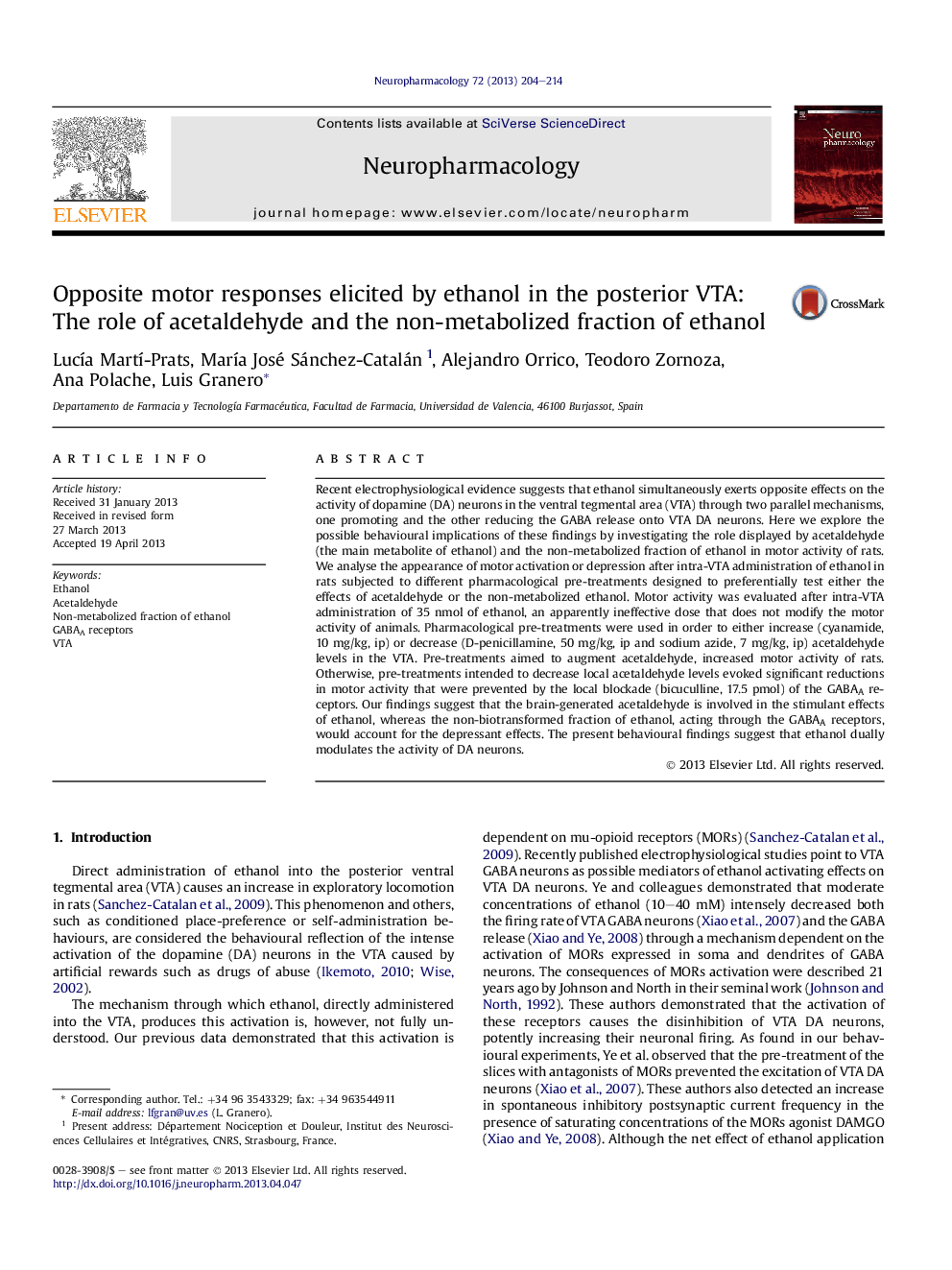| Article ID | Journal | Published Year | Pages | File Type |
|---|---|---|---|---|
| 2493467 | Neuropharmacology | 2013 | 11 Pages |
•Opposite motor responses triggered by intra-VTA ethanol are investigated.•35 nmol of ethanol in VTA does not affect motor activity in non-pre-treated rats.•Increasing acetaldehyde levels in VTA converts this dose into an activating one.•Reducing acetaldehyde levels in VTA converts this dose into a depressing one.•Motor depression after reducing acetaldehyde levels depends on GABAA receptors.
Recent electrophysiological evidence suggests that ethanol simultaneously exerts opposite effects on the activity of dopamine (DA) neurons in the ventral tegmental area (VTA) through two parallel mechanisms, one promoting and the other reducing the GABA release onto VTA DA neurons. Here we explore the possible behavioural implications of these findings by investigating the role displayed by acetaldehyde (the main metabolite of ethanol) and the non-metabolized fraction of ethanol in motor activity of rats. We analyse the appearance of motor activation or depression after intra-VTA administration of ethanol in rats subjected to different pharmacological pre-treatments designed to preferentially test either the effects of acetaldehyde or the non-metabolized ethanol. Motor activity was evaluated after intra-VTA administration of 35 nmol of ethanol, an apparently ineffective dose that does not modify the motor activity of animals. Pharmacological pre-treatments were used in order to either increase (cyanamide, 10 mg/kg, ip) or decrease (D-penicillamine, 50 mg/kg, ip and sodium azide, 7 mg/kg, ip) acetaldehyde levels in the VTA. Pre-treatments aimed to augment acetaldehyde, increased motor activity of rats. Otherwise, pre-treatments intended to decrease local acetaldehyde levels evoked significant reductions in motor activity that were prevented by the local blockade (bicuculline, 17.5 pmol) of the GABAA receptors. Our findings suggest that the brain-generated acetaldehyde is involved in the stimulant effects of ethanol, whereas the non-biotransformed fraction of ethanol, acting through the GABAA receptors, would account for the depressant effects. The present behavioural findings suggest that ethanol dually modulates the activity of DA neurons.
